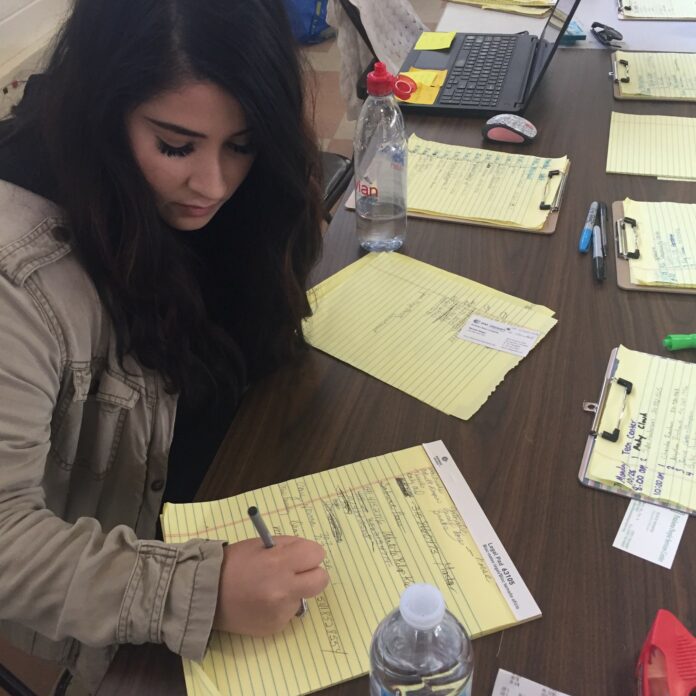Up to 187,000 people have now been evacuated from Sonoma County, where over 66,000 acres of land has burned and still burning with only a 5 percent containment as of this reporting. While some can go stay with friends or family nearby, or take their RVs to safety, many must go to the evacuee shelters set up all over Sonoma Marin, Napa, and even Alameda.
For many of the evacuated, life was already difficult. Immigrant communities and people of color, in particular, experience additional impact in these kinds of emergency situations including immigrant Latinx women who make up much of the home care, domestic, healthcare, and hotel worker community.
“When fires hit, they are the most vulnerable,” says Mara Ventura, Executive Director for North Bay Jobs With Justice, which advocates for workers’ rights, “And for a lot of undocumented workers, a big impact is lost wages.”
One such group is home care workers.
“Many home care workers have been displaced,” explains Ventura. “Some are going with clients to the shelter, or they are home without electricity. Often, their clients are with their families during an emergency like this.”
Another impact is the fear of seeking services due to immigration issues. That said, U.S. Rep. Jared Huffman said today that they received official assurance form the Department of Homeland Security that “Everyone seeking services or shelter from the immigrant community should do so with confidence that there will not be immigration enforcement activity.”
Other obstacles include the reality that for undocumented families, federal help is not available. For those families, Undocufund Fire Relief provides assistance to those who can’t otherwise receive help. According to their website, after the 2017 fires, Undocufund “distributed almost $6 million to undocumented families in Sonoma County impacted by the fires to support them in recovering and rebuilding their lives.”
Ventura is part of a network of community organizers who work with communities of color. They have organized to coordinate services for those in need, especially in emergency situations when they can fall through the cracks.
“There were many good lessons learned during the 2017 fire but it was hard to coordinate then. This time it’s been so much more connected. I really appreciate it and hope that in the debrief of this fire we plan to be even more coordinated with community organization and county efforts.”
They are now coordinating bilingual volunteers and childcare for families at shelters.
“Our biggest role right now is compiling a master volunteer list, mostly bilingual people—not just Spanish—whom we’ve been dispatching to the shelters.”
They are also coordinating with the Methodist church to ensure that the latest information gets to the homeless since they don’t always have smartphones.
To be added to the volunteer list for bilingual or childcare volunteer services or if you have a request for bilingual or childcare volunteers, you can email Ventura: ma**@*********wj.com Also those who are partially bilingual who want to help can contact her.
Even after the fire ends, volunteers are still needed. There is a need for so many things, including people to do cleaning, night shift volunteers, and bilingual volunteers.
“The shelters may be around for weeks or even months in the aftermath,” says Ventura, “and we need to have as large a list of people as possible so we can make sure volunteers have adequate rest and are able to have their normal lives too.”
Resources:
To be a bilingual volunteer, send your name, languages you speak and time and areas you are available to ma**@*********wj.com.
Undocufund Fire Relief
A resource for undocumented families who can’t seek federal assistance.









